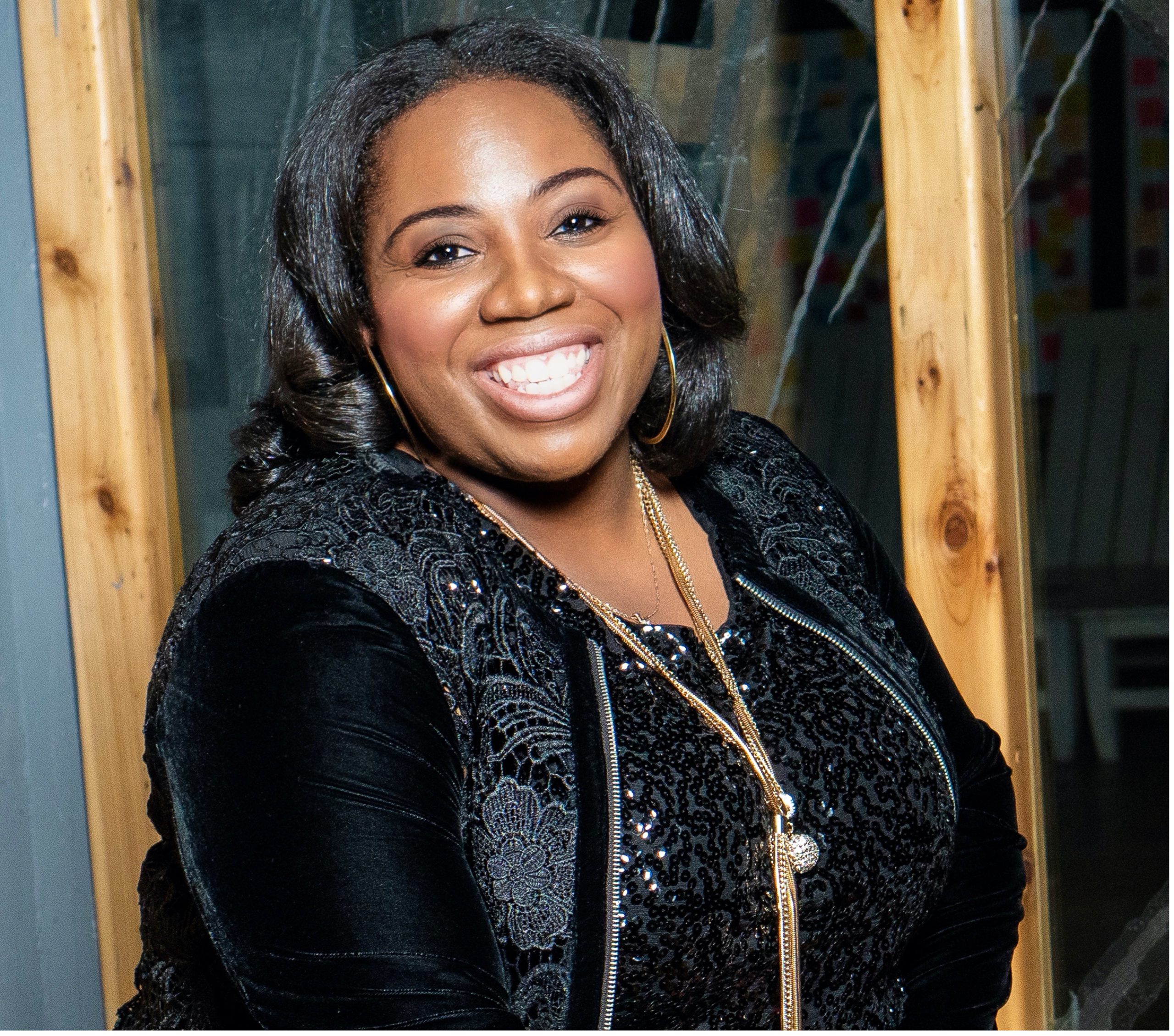By Haven Snively
If we know anything here at little word studio, it’s that words can make a difference. So, this year, let’s talk. Let’s get to know the rule-breakers and the world-changers, whose little words become really big ideas.
—
February is Black History Month and March is Women’s History Month, and there’s no better voice to celebrate both than Nikita Lawrence. A shining starin the consulting world and founder of the Wealth Leadership Academy, Nikita aims to drive women, leaders and teams to succeed while also emphasizing the power within themselves to find a higher purpose.
In addition to women empowerment, Nikita is also an advocate for diversity, inclusion and equity in the work force. The author of two books, The Secret of the Wealth Success Chamber and The Winning Blueprint Journal & Strategy Book, Nikita is inspiring brands around the world to develop a diverse and racially aware organization. In the span of an hour, I had the incredible opportunity to be inspired by Nikita as well.
HAVEN: Can you describe your experience in helping women find their purpose through your Wealth Leadership Academy and other initiatives?NIKITA: It’s so rewarding. It’s something really special when you can help to coach and mentor and train someone in an area that they’ll use for the rest of their life. Just being able to step into your identity and understanding who you really are, what your purpose is and how to move in that direction. Knowing that you have the courage and all the tools internally to go after what you want is powerful. You’ll never forget that, even as you continue to move forward. So, the experience has been extremely rewarding
What drove you to create the Wealth Leadership Academy?I knew that I could do anything, but I didn’t want to do just anything. I wanted to do the thing I was created to do. It became clear to me by way of a vision. It was to help women understand what their gifts were on the insideand to help them live the life that’s aligned to their purpose. And now, so many years later, I get to experience the fruit of that by working with real women who are successful, who are really doing amazing things and just need a little bit of support and guidance on their mindset and with their own confidence, how they view themselves and take courageous action.
What is some advice you have for aspiring women leaders?
It’s knowing that you’re more than enough and taking the journey to answer the question of “Who am I becoming?” I don’t think it takes courage to live a normal life. When you get into taking risks and stretching your potential to the limit, then all of those things that were unaddressed [in your past] come to the surface and they can be a hindrance in your progress.
Would you say that a lack of confidence is an obstacle for a lot of women leaders?
It’s not necessarily about self-confidence. I do think it is about self-image andunderstanding how you see yourself in relationship to the opportunities in the world, and what’s available to you.
There’s a term—imposter syndrome—that I hear a lot lately, and it’s about not believing you can do what others might think you can. How does imposter syndrome play into developing strong leadership skills and becoming a confident leader?
Being able to have someone who not only says, “You are more than enough,” but also can give techniques, steps, and system to rewire your paradigm is what creates the ultimate shift. Let me help you with your language, with your beliefs, with how you see yourself, with healing what’s inside and your self-image, so that you can go into what you truly desire and deserve. What I’m learning is that most people don’t really do the inner work,and not really going deep enough to truly meet themselves where they are and to stretch out for where they want to be.
So, what is the defining characteristic that transforms a subpar leader into a spectacular leader?
Courage is not the absence of fear. Courage just means that even if I’m afraid, I’m going to do it anyway. And so, the woman that says, “Listen, I’m afraid, I’m uncomfortable, I’m nervous. And I’m going for it.” That’s the one who’s a leader.
Are your philosophies on leadership taken from your own experience?
I’m learning that beyond how you feel, beyond what feels uncomfortable, what you do with that is what makes the difference in the quality of life and what you experience throughout your life. Whether that is love, whether it’s abundance, whether it’s joy, whether it’s peace. Whatever it is, I’m learning.

You’re extremely experienced in diversity, inclusion and equity in the workplace but remote working due to COVID-19 may make a diverse environment difficult to foster and grow. What would you say are some challenges organizations and companies will face this year in terms of diversity and inclusion? How will they overcome them?
I think one of the most powerful questions that leaders can ask along the lines of diversity, equity and inclusion is: “When I look at my team, who is not represented?” Really think through the layers of race, racial diversity, of gender, age, socioeconomic status. Really look at those differently, through those lenses. And then the second question to ask is: “Why is that?” Being able to sit with that response is very uncomfortable. It is not a comfortable exercise, but it’s necessary and important for having a conversation around diversity, inclusion and equity. And then the third question is, “What will I do about it?”
But it’s not always just about asking the tough questions, it’s about making the move to improve and diversify a company that can truly benefit from a change.
When we’re dealing with diversity, inclusion and equity, not everyone wants to do something about it. It’s the reality that for those who do want to do something about it, asking those questions, making that a collaborative exercise, and then beginning to be intentional around not only the recruiting for employees, but also the business that’s done with other companies.
What are your recommendations for companies that want to emphasize and improve diversity and inclusion within their organization?
[There are] books that can be read. There may be movies that are watched that relate to Black history, which is also American history. I think it’s been taught that it’s something separate, but Black history is really American history. Integrating andshowcasing not just the struggle, not just slavery, not just Jim Crow and segregationand how we have a long way to go in this country. But being able to really highlight and celebrate success, to give recognition to it. Not recognition because they’re a Black person, but recognition because they’ve done something that’s phenomenal, regardless of their race or gender.
Learning and making a difference are two different things that must work cohesively to make change, and your advice is a prime example of what can be done as an organization to support and improve, not only this month but in the future as well. Do you have any final points you would like to make?
of what can be done as an organization to support and improve, not only this month but in the future as well. Do you have any final points you would like to make?
To sum it up, companies who make a commitment to diversity, equity and inclusion in the workplace really have to show the action behind it. Making the commitment isthe first step, no matter how diverse or not diverse the company is today. Making a commitment and putting measurable goals around it is what will truly move the needle, because what we can measure, we actually create.
~
And because this is a conversation, I’d like to say a few words to Nikita, who shared so many words with me. I can’t thank her enough for the conversation we shared and the lessons we navigated during our chat. This conversation truly opened my eyes to the understanding that change can be made one person at a time. Growth and improvement often come from inside, a lesson learned from Nikita’s discussion about self-image and finding one’s purpose. But change must also come from conversation and asking the tough questions, a lesson gained from Nikita’s discussion about diversity and inclusion in the workforce.
Change is possible. Change is important. With people like Nikita guiding the way, change is coming.
For more information on Nikita Lawrence and the Wealth Leadership Academy, check out her website: https://www.nikitalawrence.com


